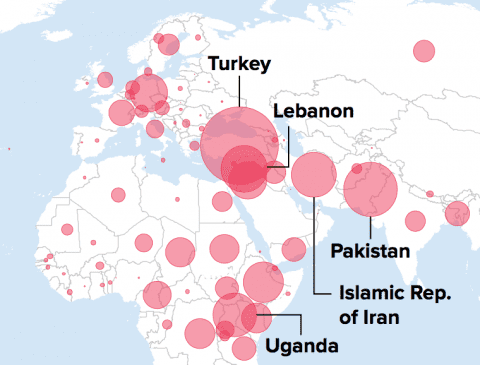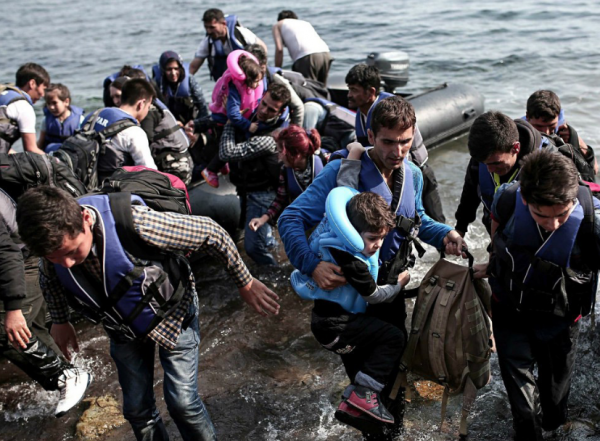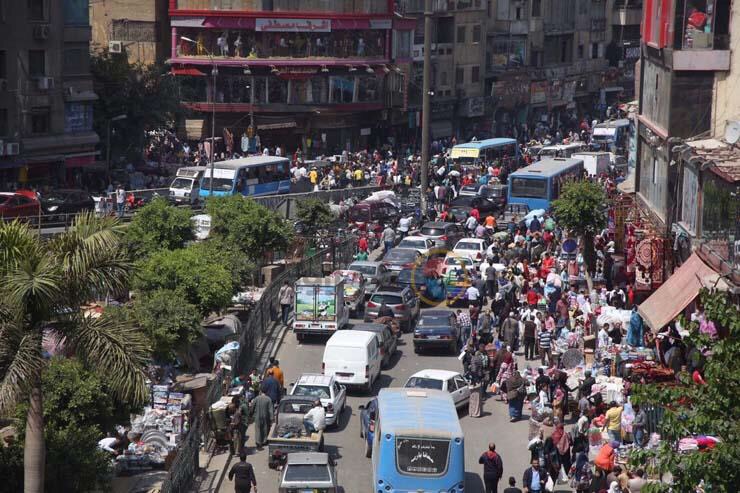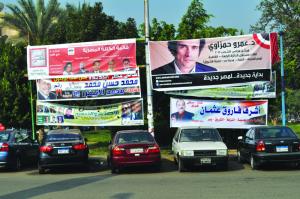Responsibility-Sharing Key to Solving Refugee Crisis
By: Karim Al Masarani
Follow @kmasarani
There are 65 million displaced people around the world according to the United Nations High Commissioner for Refugees (UNHCR), and many states are struggling to find measures to deal with such a large number.
The Center for Migration and Refugee Studies hosted a two- day international conference about responsibility-sharing for refugees in the Euro-Mediterranean region in AUC’s Tahrir Campus on Monday and Tuesday.
The conference was attended by some of the highest and most respectable human rights advocates and aimed to shed light on the current refugee and migrant situation.
This conference, divided into several panels, addressed issues such as the lack of protection afforded to refugees, their political discourse, the media’s role in covering refugee issues and access to labor markets.
Syrian refugees were the center of focus since 13.5 million were reported as displaced by the UNHCR in 2016.
However, the central point of contention during the conference was the question of responsibility.
States continue to disagree over the extent to which they should bear the burden of the refugee crisis has imposed on them.
“International responsibility sharing in the issue of refugees is a legal obligation,” Associate Professor of Law Usha Natarajan said.
However, she added that the amount of responsibility given to the issue is where the controversy lies.
In light of this legal ambiguity, some practitioners maintain that high thresholds of responsibility should be given whereas others think that the host country should put itself as the ultimate priority.
According to the 2016 UNHCR Global Trends report, 82 percent of refugees are located in the Global South while 28 percent are located in remaining countries all over the world.

THE POLITICAL DISCOURSE
One of the more pressing questions raised during the conference was how host countries cope with the huge numbers of refugees entering their borders?
Boston University Professor of Law Suzan Akram says that many of these host countries have not even ratified the 1951 Refugee Convention.
Most countries that host Syrian refugees, for example, are not party to the Convention.
This creates a huge dilemma for these countries due to the lack of structural and financial capabilities; they are forced either to send many of these asylum seekers back, or even worse, put them in legal ‘limbo’.
In those situations, refugees and other asylum seekers find themselves trapped in temporary settlement camps with unclear legal status.
WHAT IS A REFUGEE?
The conference also highlighted the common confusion which arises from the inability to differentiate between a migrant and a refugee.
Professor of Law and York University Research Chair in International and Transnational Legal Studies Obriora Okafor said that a migrant is one who chooses to leave his or her country of his or her own will to seek better opportunities elsewhere.
They are still regarded as citizens of their country of origin and remain under its protection if anything is to go wrong.
A refugee, on the other hand, is a person who is forced to leave his or her country because they are at risk to lose their lives or are in legitimate fear of persecution.
In this situation, they often renounce their citizenship and no longer fall within the legislative competence of their home state.
THE MEDIA’S ROLE
The media’s role in the refugee crisis was subject to heavy criticism and inquiry during the conference.
Many reporters and journalists covering stories about the migrant and refugee crises fall into “politician-set propaganda traps” where they fail to show the full picture.
“I think many journalists are following an agenda set by their news agency backed up by a certain government. Not only does that make them extremely biased, but also it makes it hard for the public to see the full truth,” Alan Rust, a student in the University of East London, said.
Rust added that the media sometimes makes refugees look inferior to their host country’s citizens and this causes a lot of injustice and prejudice.
WORK, WORK, WORK
The conference finally addressed refugees access to labor markets in their host countries.
The integration of refugees into the labor market poses a lot of challenges, especially in setting strategies and policies.
Even though there is much controversy on equal treatment in welfare and minimum wages between refugees and citizens, there are nevertheless many success stories.
Syrian refugees in particular have had a number of success stories, especially in Jordan and Egypt.
“Many Syrian refugees have had very successful business in many Arab host countries since they share the same language,” Ellen Hart, a graduate from Boston University said.
“Unfortunately, they struggle when they are displaced in Europe and other non-Arab countries.”




